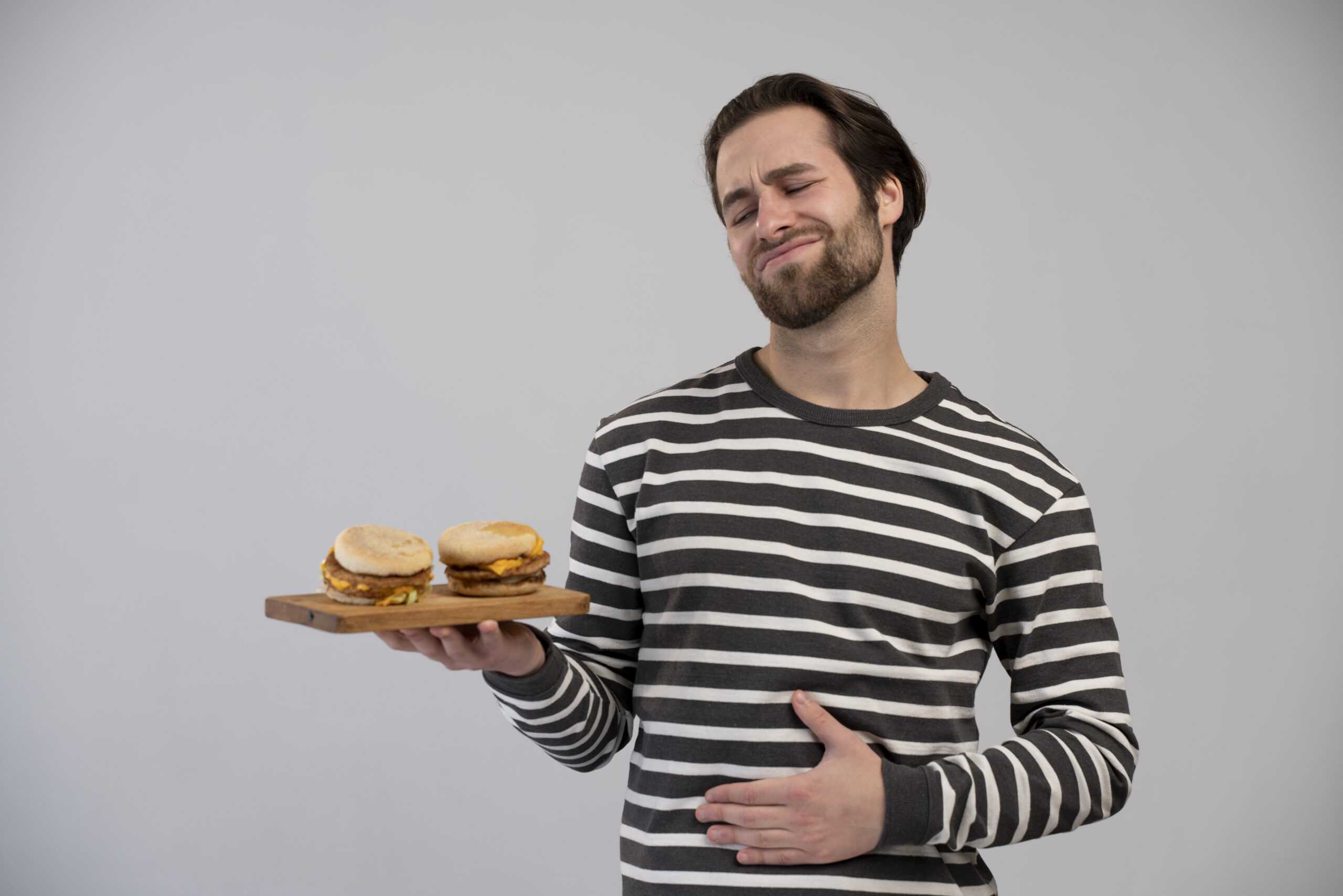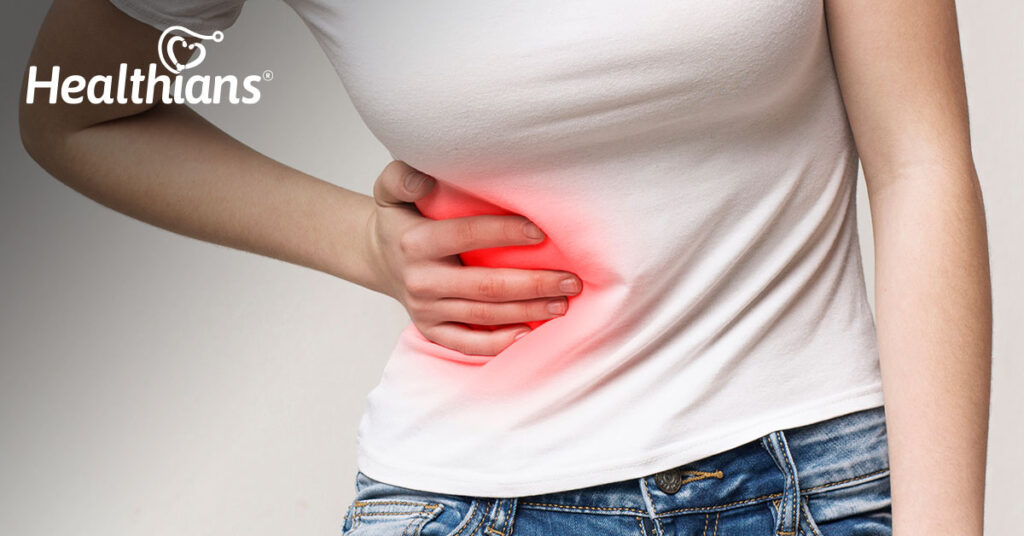Are you suffering from diarrhea? There are various causes and symptoms of diarrhea. Diarrhea is often caused by food poisoning or virus infection. These conditions result in loose stools and stomach pain. The primary goal of treatment is to reduce the severity of dehydration while maintaining hydration levels. So if you are worried about “What to eat when you have a diarrhea?” For mild cases, You can drink plenty of fluids such as water, tea, coffee, juice, and soups. Patients should take care to prevent vomiting and increase their intake of foods high in fiber, like fruits and vegetables. If a person has diarrhea, their diet is essential. Some meals may help reduce diarrhea symptoms, while others may aggravate them. This blog gives you an idea about What to eat when you have a diarrhea? And what to avoid to recover quickly.
What is diarrhea?
Diarrhea or dysentery is a gastrointestinal tract infection characterized by loose stools containing blood or mucus, accompanied by abdominal pain, nausea, vomiting, fever, and dehydration. Diarrhea may be acute (lasting less than 2-weeks) or chronic (lasting longer than 2-weeks). Acute diarrhea may result from an infectious disease, food poisoning, or medication side effects. In some patients, diarrhea may be caused by inflammatory bowel disease.
What are the Causes of diarrhea?
- Diarrhea can be caused by many factors like diet or food poisoning caused due to the consumption of contaminated food items.
- Diarrhea usually begins after eating something spicy or sour.
- Diarrhea is also known as loose stools, watery diarrhea, or plain watery stool. It happens because the body loses its ability to absorb water from the intestines.
Diarrhea may occur due to excessive consumption of water. Intake of large amounts of water results in fluid secretion in the body. If the amount of fluid secretion exceeds the excretion capacity, then it results in diarrhea.
- Sometimes diarrhea occurs due to certain medicines taken by the patient. These medicines cause diarrhea due to their side effects.
- Other cases of diarrhea are caused due to infections and viral diseases. Viral infections cause intense inflammation in the intestines and, if not treated properly, resulting in diarrhea.
- In addition to the reasons described above, diarrhea can occur due to a lack of sleep, anxietyor other factors.
What to eat when you have a diarrhea?
There are many ways to prevent diarrhea, but none work 100%. The best way to stop it is by drinking plenty of water. The following ideas will undoubtedly assist anyone unfortunate enough to suffer from it.
Fiber –
Eat a fiber-rich diet such as whole grains, fruits, vegetables, legumes, and nuts to provide bulk that helps keep stools soft and decreases intestinal transit time. Fiber is a great way to keep you feeling full longer and helps to control diarrhea. Some examples include bananas, applesauce, brown rice, oats, broccoli, lentils, and peas. Eating fiber may reduce the frequency of bowel movements and speed up recovery times.
Probiotics –
Probiotics are extremely beneficial microorganisms that live in our digestive systems. These helpful microbes improve digestion, stimulate immune function, and protect us from infections. Probiotic supplements can provide additional benefits to people who suffer from diarrhea. By adding probiotics to your diet, you may notice less frequent trips to the bathroom.
Ginger –
Ginger has been shown to aid digestion and reduce intestinal gas. Ginger is also believed to increase bile flow and enhance liver function. In addition, ginger aids in strengthening the stomach lining and can help absorb nutrients. Using ginger can prevent dehydration caused by diarrhea.
Banana –
Bananas are high in potassium. This mineral aids in the replacement of electrolytes lost due to frequent loss. You do not need to take oral rehydration solutions if you eat bananas. This yellow fruit is also high in fiber, which aids in stool bulk and bowel movement.
Milk Thistle –
Milk thistle is a herb commonly used to treat liver disease. According to research published in the American Journal of Clinical Nutrition, milk thistle appears to protect the body from damage caused by exposure to toxins. Milk thistle can help heal damaged cells and promote cell regeneration. Adding it to your diet can help alleviate symptoms associated with diarrhea.
Cabbage –
Cabbage contains iron, and vitamin K. Vitamin K is essential in processing blood clotting factors and aiding in proper bone formation. Iron is required for hemoglobin production and red blood cell oxygen delivery. Together these two nutrients play an important role in maintaining normal bodily functions. A bowl of shredded cabbage and carrots can benefit those recovering from diarrhea.
Onion –
Onions contain sulfur that fights off harmful bacteria that cause diarrhea. One study showed that onions could effectively fight off viruses that cause diarrhea. You can apply Raw onion juice directly to infected skin.
Foods to avoid when you have diarrhea –
Alcoholic beverages –
Alcohol is a diuretic and causes dehydration. Dehydration may lead to constipation and intestinal cramping, resulting in nausea and vomiting. In addition, alcohol can cause liver damage if consumed in excess.
Dairy products –
Dairy products are not recommended during acute diarrheal episodes, as these can worsen diarrhea. If possible, you should avoid dairy products with diarrhea altogether.
Salt –
The sodium content in processed foods has increased over time. Therefore, salt intake is often high in people suffering from gastroenteritis. While salt helps to replace fluid lost from diarrhea, it can also aggravate symptoms.
Carbonated drinks and soft drinks –
Sugar-sweetened carbonated drinks and soft drinks are associated with weight gain, obesity, type 2 diabetes, and tooth decay. When choosing to consume soft drinks, always consider the sugar content first. Excessive sugar intake causes diarrhea and dysentery as it is not completely digested.
Refined white pasta and white rice –
White pasta is low in fiber and contains little protein. Pasta exacerbates gastrointestinal issues due to their rough texture if eaten too frequently. Unrefined whole grains are rich in dietary fiber. To prevent diarrhea, try eating whole grains instead of refined white rice.
Also, Read Tips For Maintaining Liver Health In Seniors
Tips for treating diarrhea
- Take herbal teas (mint, chamomile) or sip hot ginger tea to stimulate digestion and help reduce stomach acidity.
- Use stool softeners (bisacodyl tablets) if diarrhea persists despite efforts to stay well-hydrated and eat soft, easily digestible foods. Be sure to follow the directions carefully.

Book an appointment with the best gastroenterologist in India.
Some frequently asked questions –
FAQs
What foods stop diarrhea fast?
Low starch and low fiber foods like bananas, brown rice, oatmeal, etc. help stop diarrhea fast.
How long should diarrhea last?
Diarrhea should not last more than a week. Generally, it lasts up to three to four days and does not exceed any longer.
What naturally stops diarrhea?
Consuming plenty of fluids and fiber stops diarrhea naturally.
Is it better to stop diarrhea or let it go?
It is better to treat diarrhea, as delaying treatment only causes trouble and worsens the condition.
What drinks help diarrhea?
Healthy fluids like water, fruit and vegetable juice, soups, and chicken broth help in diarrhea.
Source link



